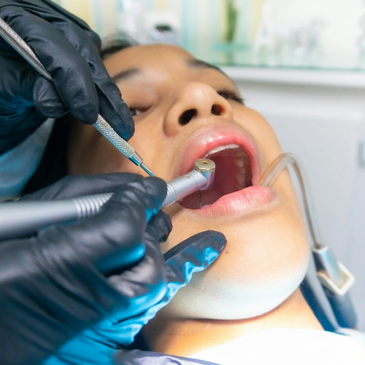A Comprehensive Overview to Pediatric Dental Care and Its Duty in Avoiding Usual Dental Troubles
Recognizing pediatric oral care is essential for developing a structure of long-lasting dental wellness in kids. Early oral gos to, correct oral hygiene methods, and dietary awareness are essential parts that can dramatically reduce the risk of typical dental issues such as cavities and malocclusion. By outfitting both caregivers and kids with the needed expertise and abilities, we can cultivate healthy routines that promote anxiety-free dental experiences. Yet, the question continues to be: just how can these methods be efficiently executed to make sure long-term outcomes?
Significance of Very Early Dental Sees
Identifying the relevance of early oral gos to can establish the foundation for a kid's long-lasting dental health and wellness. Establishing a relationship with a pediatric dental expert as very early as the eruption of the first tooth, generally around 6 months of age, is necessary. These initial check outs not just acquaint youngsters with the oral atmosphere but additionally enable very early detection of potential issues, such as misalignment or tooth cavities.
Very early oral check-ups equip caregivers with beneficial understanding regarding appropriate oral treatment, nutritional referrals, and the avoidance of oral illness. Pediatric dentists are skilled in dealing with the distinct needs of children, guaranteeing that they receive age-appropriate education and learning on dental hygiene. Moreover, these brows through provide an opportunity to go over behaviors such as thumb-sucking and pacifier use, which can impact oral growth.
Essential Oral Health Practices
Developing a solid structure for a kid's oral health and wellness goes past normal dental check outs; it additionally involves instilling efficient dental health methods from an early age. Caregivers and parents play a vital duty in teaching children proper methods to keep their oral wellness.

Flossing need to start when two teeth touch, as this prevents plaque buildup in hard-to-reach areas. Parents must help their children with cleaning and flossing until they have to do with 7 or eight years of ages to make sure thoroughness.
In addition, establishing regular oral exams every 6 months enables for expert monitoring of oral health. Teaching youngsters the significance of dental hygiene and making it an enjoyable, appealing task can foster lifelong healthy and balanced habits that are important in avoiding usual oral troubles.

Role of Nutrition in Dental Health
Nutrition plays a critical function in keeping ideal oral health and wellness, as the foods children take in can significantly affect the development and stamina of their teeth. A healthy diet plan rich in crucial vitamins and minerals is critical for constructing solid enamel and sustaining overall oral health.
On the other hand, a diet high in acids and sugars can cause destructive effects on oral health and wellness. Sugary snacks and beverages can promote the development of unsafe microorganisms in the mouth, resulting in raised acidity and a greater risk of tooth decay. It is vital for caretakers to motivate healthier snack alternatives, such as fruits, vegetables, and entire grains, which not just offer essential nutrients but also promote saliva manufacturing, further protecting teeth.
Usual Dental Troubles in Children
Dental health concerns are a typical problem for several parents, as youngsters can experience a range of issues that may affect their dental health. One widespread issue is cavities, or cavities, which emerge from the demineralization of tooth enamel as a result of acid-producing germs. This problem is frequently worsened by inadequate nutritional practices, such as frequent consumption of sweet treats and drinks.
Another usual trouble is malocclusion, where teeth are misaligned, leading to troubles in biting, chewing, and speaking. This can result from hereditary elements or habits such as thumb sucking and extended pacifier use. Furthermore, gingivitis, a very early type of gum disease, can happen in youngsters, often because of insufficient oral health methods. It is defined by red, inflamed gums that might bleed during cleaning.
Tooth injuries, consisting of avulsions or fractures, are also frequent amongst active youngsters. Regular oral exams play an important duty in finding and dealing with these common oral problems properly.
Structure Lifelong Dental Behaviors
Instilling excellent dental hygiene methods early in life sets the structure for a lifetime of healthy teeth and gums. Establishing a constant routine for cleaning and flossing is crucial; children must clean their teeth two times a day with fluoride tooth paste and begin flossing as soon as 2 adjacent teeth touch. Parents play an important role in modeling these actions, as youngsters typically imitate adult practices.
Educating youngsters concerning the significance of dental treatment can better reinforce these practices. Use interesting approaches, such as stories or interactive video games, to aid them comprehend why routine oral sees and appropriate health are essential. Additionally, introducing a well balanced diet regimen reduced in sugar can considerably reduce the danger of tooth cavities and advertise oral health.
Routine dental exams, typically advised every 6 months, offer a chance for specialist assistance and early discovery of possible issues. These brows through can additionally help youngsters develop a positive association with oral treatment. By cultivating these habits and mindsets from a young age, parents can empower their children to take obligation for their dental health, eventually address bring about a life time of confident smiles and lessened dental issues.
Conclusion

Early dental brows through, correct dental hygiene techniques, and nutritional understanding are important elements that can considerably minimize the threat of common dental issues such as dental caries and malocclusion.Very early oral exams empower caretakers with beneficial knowledge relating to correct dental treatment, nutritional recommendations, and the avoidance of dental diseases. Normal dental exams play a vital role in finding and dealing with these usual oral concerns properly.
Early oral sees, along with the application click to read more of effective oral hygiene practices and appropriate nourishment, dramatically add to the prevention of typical dental problems such as cavities and gingivitis. By instilling favorable oral routines from an early age, youngsters are much more likely to experience healthy teeth and gums throughout their lives, inevitably fostering a culture of dental health and wellness that can be maintained right into the adult years.